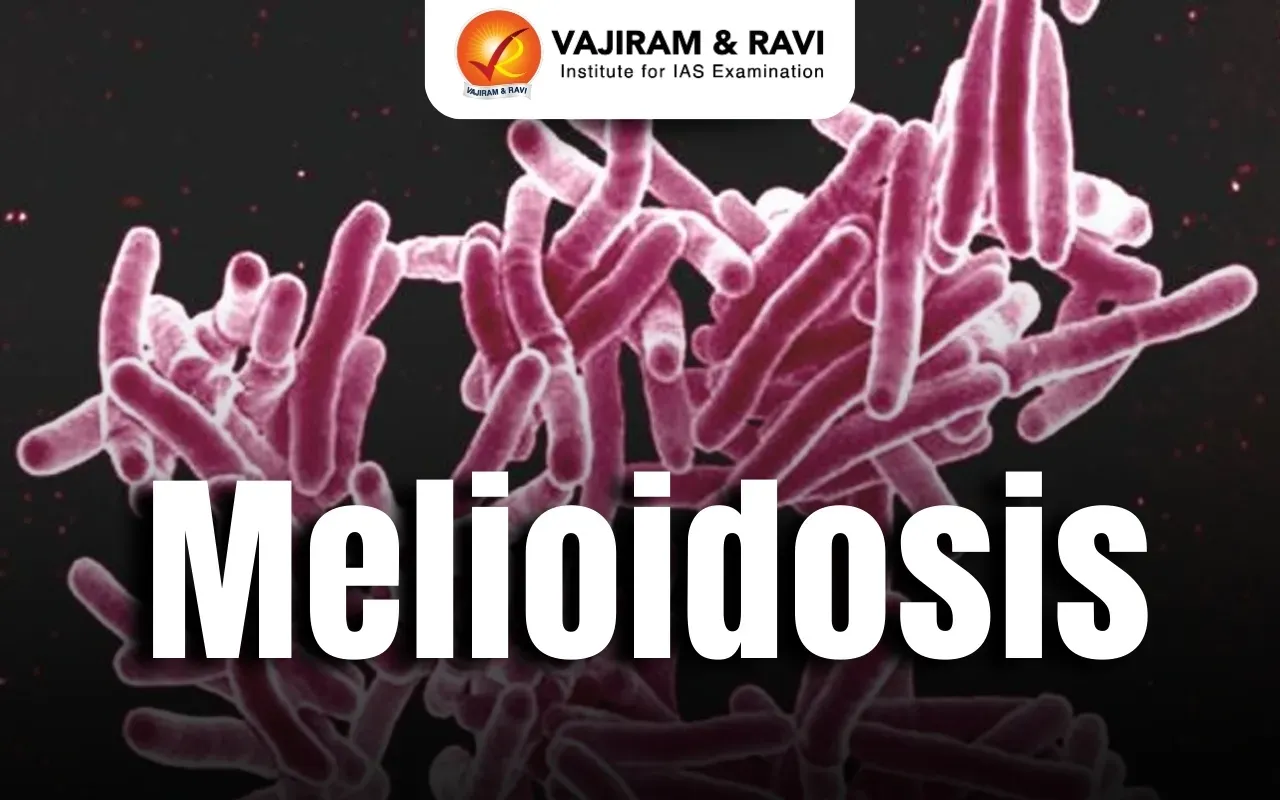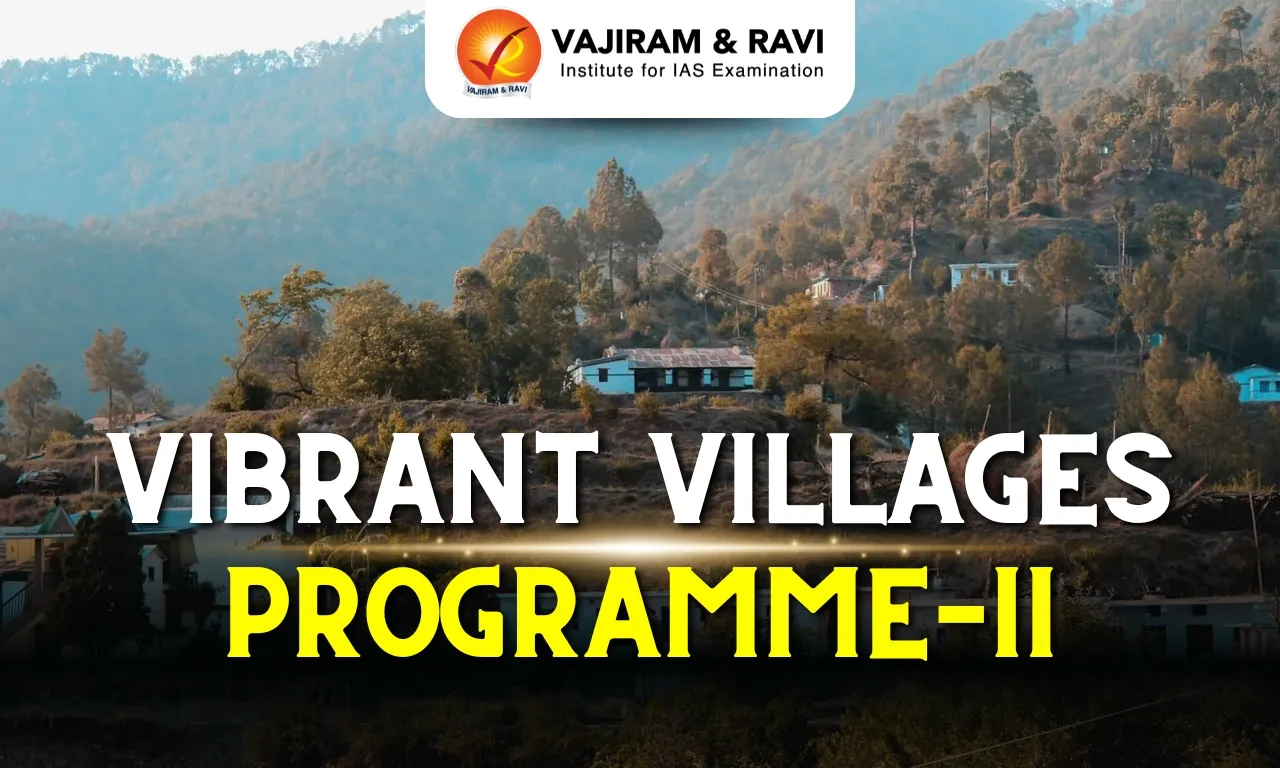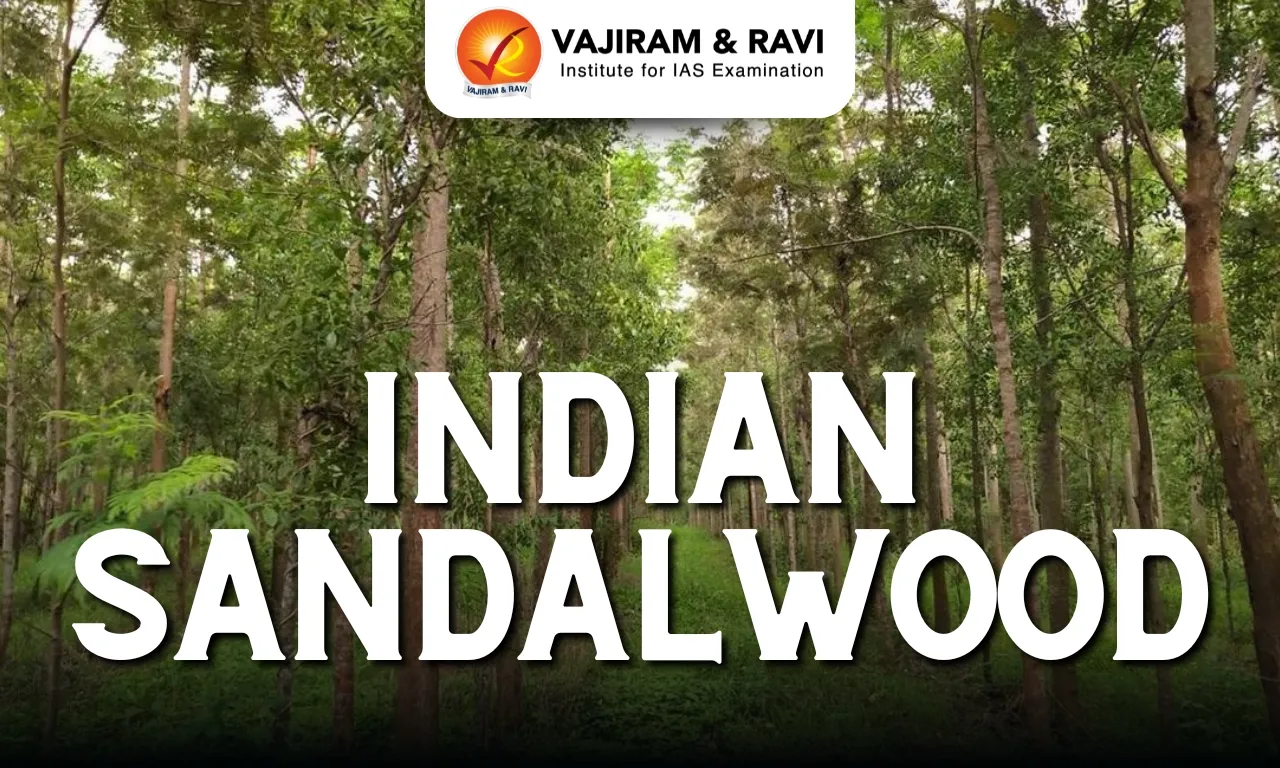Melioidosis Latest News
Recently, health authorities have confirmed melioidosis in a patient from Turakapalem village in Andhra Pradesh.
About Melioidosis
- It is caused by an infectious disease caused by the environmental Gram-negative bacterium Burkholderia pseudomallei.
- It is seasonal, with 75–85% of cases occurring during the rainy season.
- It has a high case fatality rate (CFR) ranging from 16% to 50% in known endemic regions.
- It is an infectious disease endemic in Southeast Asia, northern Australia, much of the Indian subcontinent, southern China, Hong Kong, and Taiwan.
- It is common in people living with: Diabetes, Alcohol use disorder, Chronic kidney disease Chronic lung disease (like cystic fibrosis or COPD).
- Symptoms: Fever, headache, trouble breathing and Stomach or chest pain etc.
Transmission of Melioidosis
- Touching contaminated soil with the hands or feet, especially if there are small cuts in the skin.
- Drinking contaminated water that has not been chlorinated
- Breathing in contaminated dust or water droplets
- Exposure to severe weather events such as tropical monsoon storms, cyclones, hurricanes and typhoons.
- Treatment: At present, there is no vaccine available for melioidosis.
Source: DTE
Last updated on February, 2026
→ UPSC Notification 2026 is now out on the official website at upsconline.nic.in.
→ UPSC IFoS Notification 2026 is now out on the official website at upsconline.nic.in.
→ UPSC Calendar 2026 has been released.
→ UPSC Final Result 2025 is expected to be released in the second week of April 2026.
→ Check out the latest UPSC Syllabus 2026 here.
→ Join Vajiram & Ravi’s Interview Guidance Programme for expert help to crack your final UPSC stage.
→ UPSC Mains Result 2025 is now out.
→ UPSC Prelims 2026 will be conducted on 24th May, 2026 & UPSC Mains 2026 will be conducted on 21st August 2026.
→ The UPSC Selection Process is of 3 stages-Prelims, Mains and Interview.
→ Prepare effectively with Vajiram & Ravi’s UPSC Prelims Test Series 2026 featuring full-length mock tests, detailed solutions, and performance analysis.
→ Enroll in Vajiram & Ravi’s UPSC Mains Test Series 2026 for structured answer writing practice, expert evaluation, and exam-oriented feedback.
→ Join Vajiram & Ravi’s Best UPSC Mentorship Program for personalized guidance, strategy planning, and one-to-one support from experienced mentors.
→ Check UPSC Marksheet 2024 Here.
→ UPSC Toppers List 2024 is released now. Shakti Dubey is UPSC AIR 1 2024 Topper.
→ Also check Best UPSC Coaching in India
Melioidosis FAQs
Q1. What is another name for melioidosis?+
Q2. Is melioidosis transmitted human to human?+
Tags: melioidosis prelims pointers upsc current affairs upsc prelims current affairs




















